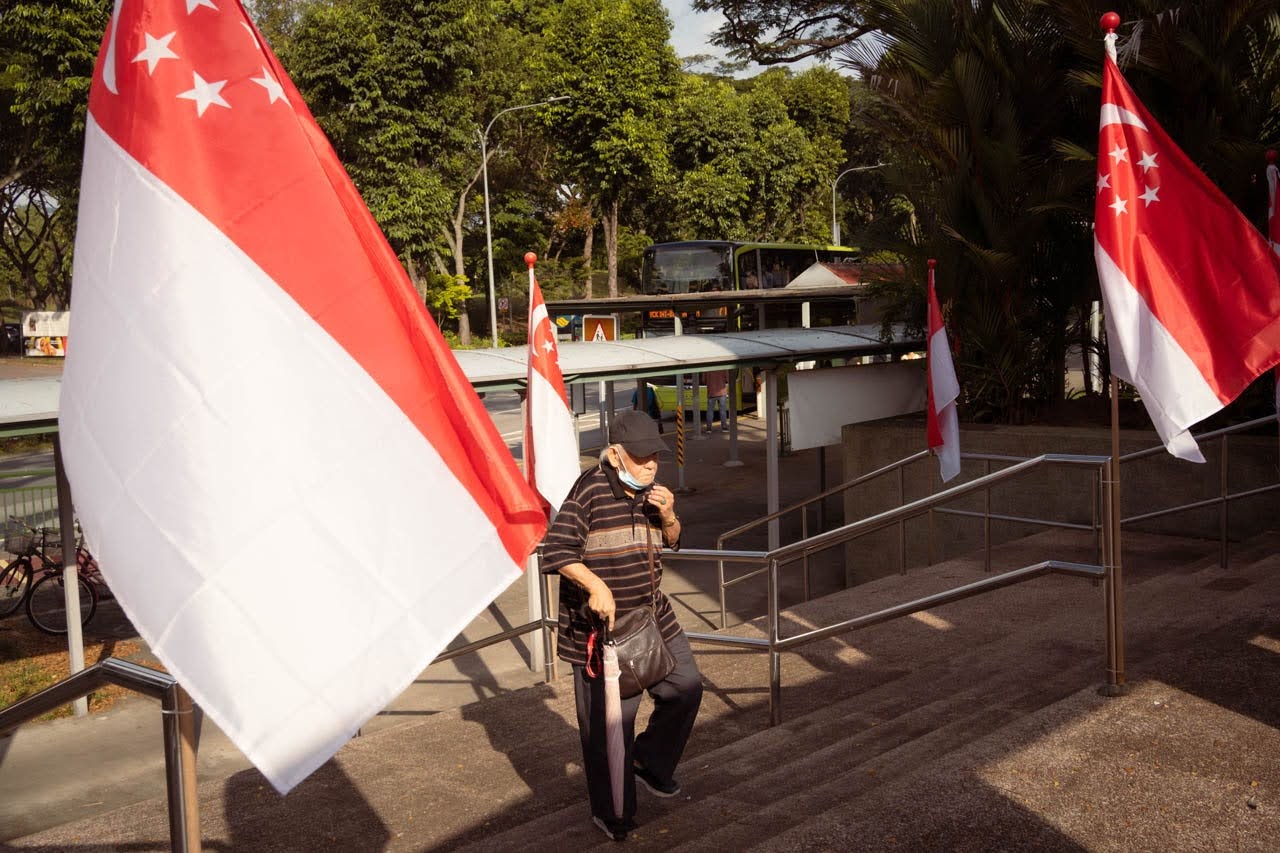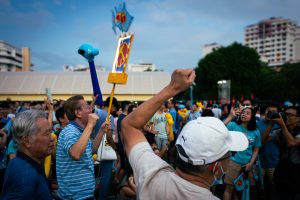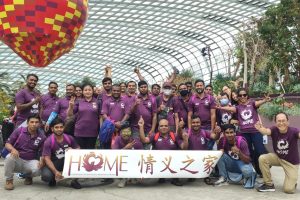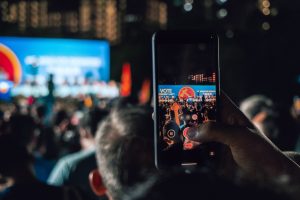Top image: Stephanie Lee / RICE Media File Photo
Every five years, Singaporeans suddenly become experts on politics. It’s a curious transition, when even the most unbothered citizen rapidly updates himself on the last five years of political developments and scrutinises for new faces in their GRC’s line-up.
Dinner table conversations among friends transform from work gossip and relationship updates to progressive taxes and social inequity, and the ever-present question of who everyone is voting for.
When that question is directed to me, my answer often triggers a surprised reaction from around the table: “Huh? You’re not Singaporean?”
To be fair, it’s hard to tell sometimes. The typical guy’s ice breaker question of “Which camp are you from?” doesn’t faze me because I’ve served my two years, like almost all Singaporean men. My accent also doesn’t give anything away, unless someone happens to overhear me speaking Mandarin or Malay.
Yet, every five years, I’m reminded that I’m not Singaporean—that I don’t have a vote here.

No Citizenship, No Say
Perhaps you might find it strange why I, a non-Singaporean, feel compelled, or even entitled to a vote. After all, if I won’t commit to staying here, why should I get a say in how Singapore is run, and how its future is shaped?
You may have a point. Singapore is for Singaporeans—people with that coveted pink identity card (IC). People who’ve committed to putting down roots here, call it home, and want to see it prosper.
I’m not a citizen. I am effectively a foreigner; even though I do have permanent resident status here, I remain a citizen of Malaysia.
I can vote, just not in Singapore.
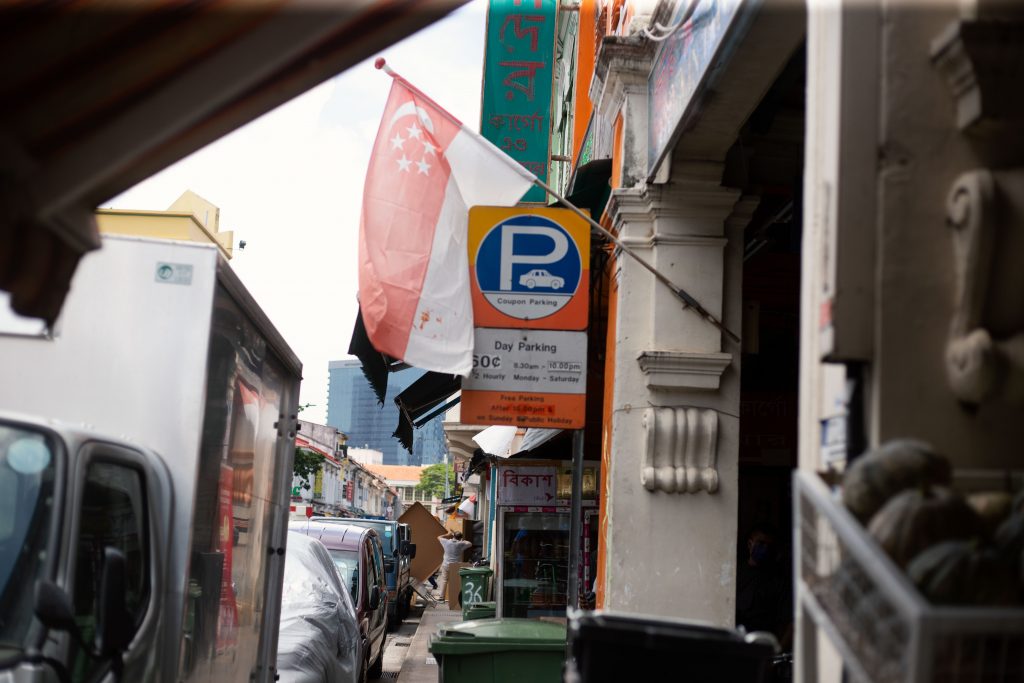
And certainly, some of my fellow foreigners couldn’t care less about what happens here.
A friend of mine dismissed the campaigning here as “child’s play”, since there was minimal hope that anything would change.
“I honestly can’t really be bothered to follow what’s going on here, especially when my own country has bigger fish to fry.”
After all, what passes for a political scandal here in Singapore can be laughable when we look beyond our borders. South Korea’s president tried to launch a coup late last year, and was impeached just this month. There’s a civil war raging in Myanmar. And my own country of Malaysia sees corruption scandals so frequently that they barely raise eyebrows anymore.
In contrast, using adult language into an open microphone or having an affair sends Singaporeans into a frenzy, with everyone playing detective and trying to pry more details from any source they can find.
Bigger fish to fry is right, indeed. Shouldn’t we, as foreigners, focus more on these ‘bigger fish’ in our own country, rather than what happens here?
Identity Crisis
However, I didn’t grow up in Malaysia. My education is Singaporean. I can tell you which schools I attended and which qualifications I attained. I’m as lost as the typical Singaporean when Malaysians talk about Sijil Pelajaran Malaysia (SPM) scores.
I’m far more at home talking to my friends about their Build-to-Order (BTO) flat applications and about how expensive it is to stay in Singapore.
After all, this is the place where I grew up, where my friends are, where I’ve spent the majority of my life, and where I plan to stay for the foreseeable future. I see the problems here more than I see the problems of Malaysia. And I’ve thought of them far more than the problems of Malaysia.
So while yes, Malaysia has corruption scandals, they’re far from me in a sort of fantastical way. I’ll never really feel or see their impact. But when my friends complain of the rising costs of living, of how hard it is to save up for a house, of how many times they’ve tried and failed to get a BTO flat, these are problems that I can relate to, because I’ve seen them firsthand.

I’ve watched the price of my favourite chicken rice go from S$3, then to S$4.50, then to S$7.
I’ve watched my friends ‘donate’ S$10 to apply for an HDB flat numerous times. (They gave up and bought a resale instead.)
I’ve watched as my friends argued over the right time to send their child for tuition and supplementary classes.
These are the problems that I see and hear about, far more than any scandal in Malaysia. These are the problems that I feel ownership over, because they might very well eventually become my problems as well.
And yet, I remain without a say about them, because I cannot vote here.
On Belonging
Clearly, feeling Singaporean isn’t the same as being Singaporean. And it’s not just about the right to vote either.
It’s also being cut out from the many social assistance systems that are in place in Singapore.
I’ve never had the privilege of safety nets like the Edusave-funded school trips my classmates enjoyed and the Goods and Service Tax (GST) vouchers that soften the impact of inflation for my friends.
Several years ago, during the pandemic, a neighbour began to make loud banging noises above my room, to the point where it was impossible to concentrate on my work. When I approached the town council for help, they had a simple solution for me: “You’re Malaysian right? And you’re renting anyway. Just move out lah!”
Such nonchalance and unwillingness to help was new to me. I’d always known that I felt Singaporean without being Singaporean, but now it was being thrown in my face. As if I didn’t belong. As if any inconveniences to me weren’t real because I didn’t hold a pink IC.

In that moment, I began to understand the depths of my alienation in the system. No matter how long I was here, the colour of my IC would determine my rank and how much access I had to social safety nets. Never mind that I paid GST and income tax like everyone else.
It’s a sour feeling—to have served my two years of National Service and to know Majulah Singapura better than Negaraku, and still be seen as a foreigner. I’ve certainly given more than some others who call themselves Singaporean.
Of course, voting should be for Singaporeans, who are naturally concerned with Singaporean interests. That is not in dispute.
But the question “What is a Singaporean?” has many answers.
What Makes a Singaporean?
Sometimes, when I reveal that I hold a Malaysian passport, several people have remarked: “You’ve been here for so long, you’re basically a Singaporean.” Or, on occasion, when people ask about my opinion on immigration policy, I do have to remind them that despite sounding and behaving like a Singaporean most of the time, I’m technically a foreigner.
Yet, in a country that calls itself a country of immigrants, I’ve wondered: Where’s the line between native, immigrant, and foreigner? Am I a foreigner if most people treat me as if I’m not? I certainly feel Singaporean, more so than those who grew up elsewhere and moved here more recently.
But I can’t deny my Malaysian culture and upbringing. Morning showers are not optional, and neither are bidets. Walking ten minutes to the nearby supermarket or kopitiam when driving is possible sounds exhausting to me.
(And yes, I have a preference for Malaysian food. I’d take herbal bak kut teh over pepper any day.)
A pragmatist might say that these are inconsequential and that I can still have these opinions as a Singaporean. That may be true, but that leap of becoming a Singapore Citizen—to deny my Malaysian heritage—feels like a huge betrayal of who I am. For me, being Singaporean and being Malaysian isn’t mutually exclusive. I’m someone who is both, but just happens to hold a Malaysian passport.
So the next time you take aim at immigration and foreign talent in Singapore, it might be helpful to consider: How foreign are the people around you, really? How different are they from you as Singaporeans? You may be more alike than you think.
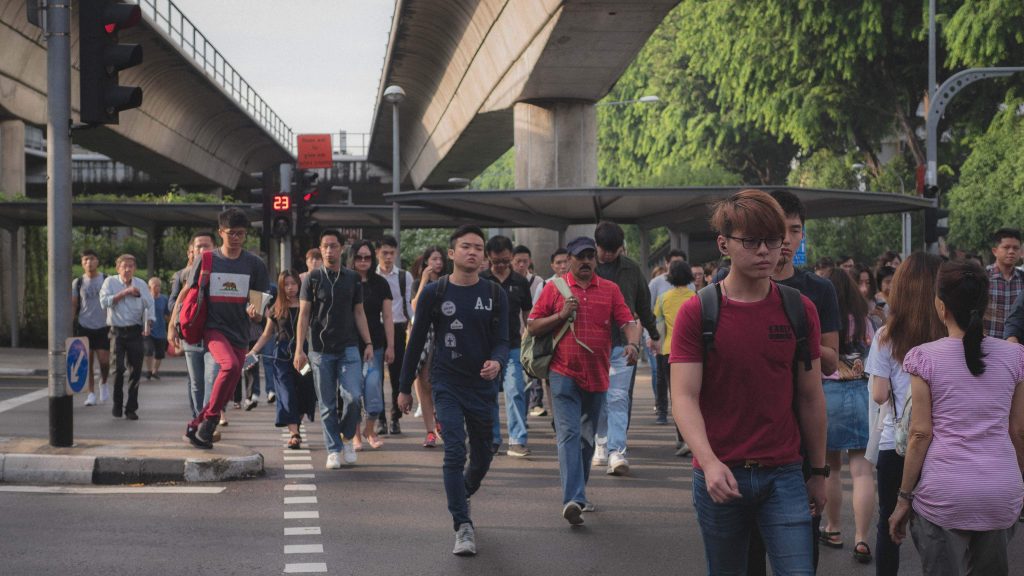
Unfortunately, there are no ‘half votes’. No matter how alike I may be to Singaporeans in terms of outlook and upbringing, I still don’t have a vote. The same applies to every foreigner in Singapore.
I am a Permanent Resident of Singapore—one of more than half a million here. What Singapore’s government does affects my life, more so than anything Malaysia’s government might do.
I’ve fulfilled my duty as a ‘Singaporean son’. And yet, I’m not a Singaporean, and have no say on who represents me on May 3rd.
It’s a strange feeling. Whoever is voted in will impact my life and the country I call home. But they won’t be my government.

